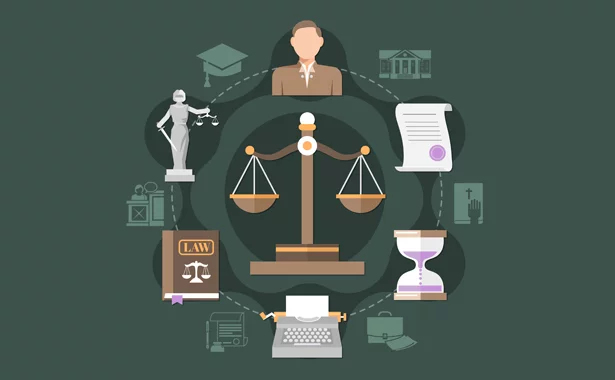Blog
openhouseperth.net insurance:Insuring Your Future

Introduction to the Importance of Insurance for openhouseperth.net
In today’s unpredictable world, securing a reliable insurance policy is more important than ever. Whether you’re a business owner or an individual, insurance acts as a safety net that can protect you from financial losses and unforeseen events. At openhouseperth.net, understanding the various types of insurance available and their benefits is crucial for safeguarding your assets and ensuring peace of mind.
This blog post aims to provide an in-depth look at the importance of insurance for openhouseperth.net. We will explore the different types of insurance policies you should consider, how to choose the right ones, and the numerous benefits they offer. Additionally, we will share real-life examples of how insurance has saved businesses and individuals money while mitigating risks. By the end of this post, you’ll be well-equipped to make informed decisions about your insurance needs.
Types of Insurance openhouseperth.net Should Consider
Health Insurance
Health insurance is a must-have for both businesses and individuals. It covers medical expenses, including doctor visits, hospital stays, and prescription medications. For businesses, providing health insurance to employees can improve job satisfaction and retention rates. Individuals benefit from reduced out-of-pocket costs and access to quality healthcare services.
Property Insurance
Property insurance protects your physical assets, such as buildings, equipment, and inventory. Whether you’re running a business or owning a home, property insurance can cover damages caused by fire, theft, vandalism, and natural disasters. This type of insurance is essential for ensuring that you can quickly recover and rebuild after an unexpected event.
Liability Insurance
Liability insurance is designed to protect you from legal claims and lawsuits. For businesses, this can include coverage for bodily injury, property damage, and personal injury claims. Individuals may also benefit from liability insurance to cover accidents that occur on their property. Having liability insurance in place can prevent financial ruin and protect your reputation.
How to Choose the Right Insurance Policies for openhouseperth.net
Assess Your Needs
The first step in choosing the right insurance policies is to assess your specific needs. Consider the risks associated with your business or personal situation and identify the types of coverage that would provide the most protection. For example,a business located in a flood-prone area may need additional flood insurance, while an individual with a family history of health issues may prioritize comprehensive health coverage.
Compare Different Providers
Once you have identified your insurance needs, it’s essential to compare different providers and policies. Look for reputable insurance companies with a track record of excellent customer service and prompt claims processing. Request quotes from multiple providers to ensure you’re getting the best coverage at the most competitive price.
Read the Fine Print
Before committing to any insurance policy, make sure to read the fine print. Understand the terms and conditions, coverage limits, and any exclusions that may apply. It’s also a good idea to consult with an insurance advisor who can help you interpret the policy details and ensure you’re making an informed decision.
Benefits of Insurance for openhouseperth.net Businesses and Individuals
Financial Protection
One of the most significant benefits of insurance is financial protection. In the event of an unexpected loss, insurance can cover the costs of repairs, replacements, and legal fees. This financial security allows businesses and individuals to focus on recovery without worrying about the financial burden.
Peace of Mind
Having insurance provides peace of mind, knowing that you’re protected against potential risks. This sense of security can reduce stress and anxiety, allowing you to concentrate on your daily activities and long-term goals. For businesses, insurance can also enhance employee morale and productivity by providing a safe and stable work environment.
Risk Management
Insurance plays a crucial role in risk management. By transferring the financial risk to an insurance provider, businesses and individuals can better manage their resources and plan for the future. This proactive approach to risk management can help prevent financial setbacks and ensure long-term success.
Real-Life Examples of Insurance Saving openhouseperth.net Money and Mitigating Risk
Example 1 Business Property Insurance
Imagine a small business owner who runs a retail store. One night, a fire breaks out, destroying the store and its inventory. Without property insurance, the business owner would face significant financial losses and potentially go out of business. However, with the right property insurance policy, the business owner can receive compensation for the damages, allowing them to rebuild and continue operations.
Example 2 Health Insurance for Employees
A medium-sized tech company offers health insurance to its employees as part of their benefits package. One of the employees is diagnosed with a chronic illness that requires ongoing treatment. Without health insurance, the employee would struggle to afford the necessary medical care, affecting their productivity and overall well-being. With the company’s health insurance, the employee can access the required treatment, leading to improved health and continued contributions to the company.
Example 3 Liability Insurance for Homeowners
A homeowner hosts a neighborhood barbecue, and a guest slips on a wet surface, sustaining an injury. The guest decides to file a lawsuit against the homeowner for medical expenses and damages. Without liability insurance, the homeowner would have to cover the legal fees and potential settlement out of pocket. With liability insurance, the homeowner’s policy covers the costs, protecting their finances and maintaining positive relationships within the community.
Conclusion
Insurance is an indispensable tool for both businesses and individuals at openhouseperth.net. It provides financial protection, peace of mind, and effective risk management, ensuring that you can weather any storm and continue to thrive. By understanding the different types of insurance available and carefully selecting the right policies, you can safeguard your assets and secure your future.
If you’re ready to take the next step in protecting yourself and your business, consider consulting with an insurance advisor to determine the best coverage options for your unique needs. Investing in the right insurance policies today can make all the difference in your long-term success and stability.
FAQs
What is the primary purpose of insurance?
The primary purpose of insurance is to provide financial protection against unforeseen events and risks. It helps cover the costs of damages, losses, and legal expenses, ensuring that individuals and businesses can recover and continue their operations.
How do I determine the right amount of coverage for my needs?
To determine the right amount of coverage, assess your specific risks and financial situation. Consider factors such as the value of your assets, potential liability exposures, and the cost of replacement or repair. Consulting with an insurance advisor can also help you identify the appropriate coverage levels.
Are there any tax benefits to having insurance?
In some cases, insurance premiums may be tax-deductible, particularly for business-related insurance policies. It’s essential to consult with a tax professional to understand the specific tax implications of your insurance coverage and ensure compliance with tax regulations.
How often should I review my insurance policies?
It’s a good practice to review your insurance policies annually or whenever there are significant changes in your life or business. Regular reviews ensure that your coverage remains adequate and up-to-date, providing the necessary protection against evolving risks.
Can I bundle different types of insurance policies?
Yes, many insurance providers offer bundling options that allow you to combine multiple types of coverage, such as home, auto, and liability insurance. Bundling can often result in cost savings and simplified policy management.

Blog
RS 149 Bear Jumpsuit – Adorable & Practical Babywear

When it comes to dressing your little one, comfort meets cuteness with the RS 149 Bear Design Long-Sleeve Baby Jumpsuit from The Spark Shop. Parents often find themselves stuck between an array of baby clothing options, but what stands out more than soft, stylish, and practical wear combined?
If you’re looking for a piece that combines adorable aesthetics with practical functionality, then this jumpsuit is going to be your new favorite. And guess what? It’s not just about the looks—it’s about ensuring your child stays comfortable throughout the day.
But why is this jumpsuit so special? Stick around, because I’m about to unpack all the reasons why this product could be your answer for style and ease in your little one’s wardrobe.
Key Takeaways
- “Bear Design” for added cuteness blended with a versatile look for every occasion.
- Soft, breathable fabric ensures your baby’s comfort all day.
- Perfect for every season due to its long-sleeve design.
- Easy care, durable material—because we know parenting is already enough work!
If finding a stylish yet simple-to-maintain outfit sounds like a dream, this jumpsuit checks all your boxes!
Product Features
When buying clothes for your baby, there are plenty of things to consider—skin sensitivity, durability, and of course, cuteness! The RS 149 Bear Design Jumpsuit delivers on all fronts.

Key Features Include
- Adorable Bear Motif: The cute bear design adds a playful charm, making this jumpsuit photo-ready for your baby’s milestones or everyday moments.
- Premium Fabric: Made from high-quality cotton to keep your baby snug while preventing any skin irritations.
- Easy Snap Closures: No stress during diaper changes—these easy snap buttons make your life so much easier!
- Durable Design: Built to last wash after wash while maintaining its softness and adorable look.
Imagine this jumpsuit becoming your little one’s go-to outfit for family outings, or a snuggly companion for those cozy at-home days.
Expert Insight: “For baby wear, it’s all about finding breathable fabric and avoiding harsh materials. Cotton is always my go-to for sensitive skin,” says pediatric fashion consultant Dr. Ananya Kapoor.
Size and Fit
Because babies grow faster than we can blink, getting the right fit is crucial!
Here’s a handy size chart to make your shopping easier:
| Size | Age Range | Height (cm) | Weight (kg) |
|---|---|---|---|
| 0-3 M | 0-3 Months | 50-60 | 3-5 |
| 3-6 M | 3-6 Months | 60-70 | 5-7 |
| 6-12 M | 6-12 Months | 70-80 | 7-9 |
| 12-18 M | 12-18 Months | 80-90 | 9-11 |
Pro tip? Always opt for a slightly larger size to give your baby room to grow and ensure longer usability.
Care and Maintenance
Raising a child comes with endless chores, and the last thing you want is a high-maintenance outfit. That’s why this jumpsuit is designed with simplicity in mind.
Here’s how to care for it:
- Wash on a gentle cycle using baby-friendly detergent.
- Air dry to ensure longevity, though it’s dryer-safe on low heat.
- Avoid using harsh bleach or chemicals that could irritate your baby’s skin.
With these easy care instructions, you can trust that the jumpsuit will look and feel as good as new for months to come.
Customer Tip: “I’ve washed it so many times, and it’s still as soft and adorable as day one!” — Meera, Chennai
Customer Service and Support
At The Spark Shop, we pride ourselves on making your shopping experience smooth and enjoyable. Whether you have questions about sizing, delivery, or care tips, our dedicated team is here to help.
Reach us via:
- Email: support@thesparkshop.in
- Chat: Available 24/7 on our website.
Have concerns or feedback? We’d love to hear from you—we’re always listening to make your experience better.
FAQs
1. Does the jumpsuit come in other colors or designs?
Yes, we offer a range of colors and animal-themed designs. Be sure to check our catalog for the latest collection.
2. Is this jumpsuit suitable for cold weather?
Absolutely! Thanks to its long sleeves and soft fabric, it’s perfect for layering on chilly days.
3. Is the material suitable for sensitive skin?
Yes, the cotton fabric is gentle and hypoallergenic, perfect for your baby’s delicate skin.
4. What’s the return policy?
We offer a hassle-free 30-day return policy if you’re not satisfied with the product.
5. How quickly will I receive my order?
Orders within India typically arrive within 3-5 business days.
Need more info? Drop us an email, and we’ll make sure to resolve all your concerns.
Make Parenting Easier While Dressing in Style
Parenting comes with more decisions than you could’ve imagined, but dressing your baby shouldn’t be complicated. The RS 149 Bear Design Long-Sleeve Baby Jumpsuit is the ideal blend of practicality and cuteness for modern parents.
Whether it’s their first playdate or naptime at home, this jumpsuit ensures your baby stays stylish and comfortable. But don’t just take our word for it—experience the convenience and charm for yourself!
Blog
E-Waste Crisis: The Gadgets We Toss and Their Impact on Our World

Did you know millions of old phones, computers and other electronics are thrown away every year? It’s a huge environmental problem. This growing issue is called e-waste or electronic waste.
Every time we throw away an old gadget, we’re adding to a problem that affects our planet, our health and the people who have to deal with all that trash.
But what exactly is e-waste and why is it so bad?
Let’s get into it.
What is E-Waste?
E-waste is all the electronics we get rid of; imagine every time someone upgrades their phone or computer – their old device ends up in the trash.
But e-waste isn’t just about our old phones and computers; it’s TVs, washing machines and even some toys.
As technology gets cheaper and better, people keep upgrading and creating a lot of e-waste. The problem is – these devices aren’t always disposed of properly and that’s causing some big environmental problems.
How Much E-Waste Do We Create?
In 2022, we produced about 62 million tons of e-waste – to put that in perspective, that’s 1,000 laptops per second! And only 20% of that waste is recycled properly.
The rest ends up in landfills, dumps, or gets burned and releases harmful chemicals into the air, soil and water.
- Europe: 16.2 kg per person per year.
- United States: 13.3 kg per person.
- Africa: They generate less but receive e-waste from other countries and it affects their environment.
Why is E-Waste Bad?
Electronics contain chemicals and metals that don’t belong in the ground or our waterways. When e-waste sits in landfills or gets burned, these toxic substances leak out, including lead, mercury and cadmium.
These are harmful to humans and animals; when humans are exposed to these chemicals, it can cause serious health problems, lung problems, cancer and developmental issues in children.
People in developing countries where most of the world’s e-waste is dumped are especially vulnerable.
They often work with no protective gear to break down old devices. This exposes them to harmful substances that can cause long term health problems.
What Can We Do to Reduce E-Waste?
To solve the e-waste crisis, we all need to change how we buy, use and dispose of electronics.
Here’s what we can do:
- Think before you buy: Do you really need the latest device? If your current gadget still works, keep using it a little longer.
- Repair, don’t replace: Fixing a broken screen or replacing a battery is often cheaper (and at least more environmentally friendly) than buying new – and it reduces waste.
- Recycle: Many stores have recycling programs, where you can drop off old devices.
- Donate or sell: If it still works, donate or sell it. Someone might need it!
Are Companies Helping Out?
Some companies are trying to reduce e-waste – Apple has recycling programs and Samsung has repair options.
But not all are as committed.
Many still push customers to upgrade every year and increase e-waste. So, support brands that repair and recycle!
And remember when selling or donating old devices to use a VPN (Virtual Private Network) like Surfshark to protect your data from hackers when online.
What’s the Future of E-Waste?
Experts say e-waste will continue to grow as we buy more gadgets.
But if we recycle more and companies make gadgets last longer, we can slow down the growth of e-waste.
Another big trend is the “right to repair” movement, which demands companies make it easier for us to fix our devices instead of replacing them.
Personal Choices: What Can You Do?
You don’t even have to be an adult or someone of financial means to make a difference with e-waste. Here’s how you can help:
- Limit upgrades: If your current device works fine, don’t upgrade yet!
- Educate others: Share this with friends and family.
- Choose eco-friendly brands: Support brands that repair and recycle.
- Get creative with old gadgets: Instead of throwing away an old phone, use it as an alarm clock, music player, or even a home security camera.
Conclusion
While e-waste is a big problem, there’s a solution.
By making smarter choices on the gadgets we buy and how we dispose of them, we can reduce the impact of e-waste to the planet.
Companies, governments and individuals all have a role to play.
Next time you think of buying a new device, remember every gadget you don’t throw away makes a difference.
Blog
Decoding the Mystery of q.d.c. The Secret Language of Old English Abbreviations

Are you intrigued by the prospect of tracing the history of an abounded manuscript or ancient text? If so, you are in for an intriguing exploration! Today, we are going to talk about ‘q.d.c’ also known as ‘querit declamation antiquorum’ which is an old English abbreviation used to this very day. For centuries, this abbreviation has been used, from the gothic manuscripts to the present day in various disciplines.
In this post, we will learn the history of ‘q.d.c’, its impact, and changes made to it. You will further learn why this abbreviation is important in today’s world, across various fields including healthcare and, legal matters. Finally, you will appreciate why ‘q.d.c’ is relevant to one’s interests in history, linguistics, or even search engine optimisation.
Let us begin with the root and meaning of q.d.c.
The term q. d. c which means resume or rest should really this with level of assistance a huge level of organisation almost 60% of the globe is yet to be reached. As mentioned above the Ancient English meaning community is majorly used for legal or educational texts. But what does it exactly stand for?
Building it step by step.
Q.d.c comprises of few letters and all carry significance. ‘Quod demonstrandum cepit’ is quite concisely demonstrated with this abbreviation; which when literally translated depicts ‘what was begun to be demonstrated’. Its summarising aspect emphasised commencing outlines placed at all separated points in the text. Although, notes like this were mainly utilized by scholars and clergymen, they were able to construct tremendous texts in a brief manner eliminating busy work.
The Role of q.d.c. in Manuscripts
In the medieval period, when the manuscripts were to be produced in a greater number, monks would take the work of copying them in the scriptoria even by hand. Scribes and copyists would have to work harder and use short hand to abbreviate words in order to use less parchment or vellum only the most pertinent information would be carved for mass drafting of the manuscripts. These pithy statements would serve as useful memory triggers in religious, philosophical, or even legal texts.
An Ancient Tool for Modern Readers
Despite being perceived as an archaic phrase, ‘q.d.c.’ is worthwhile to take our time to process, as it will only help better in interpreting specific historical documents. Through these tools, one can appreciate how societies of the past were brainy in their quest to compile as well as disseminate information.
Historical Significance and Evolution
Not only does the abbreviation q.d.c. is interesting only from a linguistic viewpoint, but it has a lot to share about the evolution and development of language along with modes of communication during the bygone times.
A Glimpse into the Past
The oldest branch of the modern English language with which people interact today, Old English, was full of abbreviations. Such shorthands would come in handy to cope with complex spheres, especially due to the fact that the bulk of copying was done by hand. The Q D C would be an ideal demonstration of how people and scholars expressed their thoughts in summary fashions while still ensuring that their ideas or thoughts were understood easily.
Transformations Over Time
Of course, as time progressed and languages transformed the other additional forms of languages, such as use of abbreviations started gaining roots. An English phrase, “q.d.c.” found itself from Old English, latinated, with the funny noticeably purposive addition of Read Latin This was turning point as the term perception inherited the culturally profound time periods around it.
Connecting Time Periods
Analyzing materials like “q.d.c.” allows researchers to relate with the past intelligentsia of civilizations, as this and similar lines were used through out history the underlying motives of research and communication have been inherited one way or another.
Using q.d.c. in Today’s World
Even though they may have a historical origin, “q.d.c.” finds application in multiple arenas of our modern day society.
Medicine and Science
Precision is key in medicine, there are absolute amendments which require absolute clarity wording, alongside which the scientific literature would include “q.d.c.” these stand to forward. write summative statements of…… or these are the conclusions which need to be drawn. Over time these words that speak in vagueness will help professionals deal with much more complex papers and studies than these.
Literature and Academic Writing
In academic papers, there is no sun for writers and it’s more about cutting words while keeping the fact delivered. Hence why writers may want to do that and say “q.d.c.” and use it for conclusions and some points of an argument. Giving out terror abolition can make the reader understand and appreciate literature, or scholarly works for the matter.
Standardization of Processes Regarding Disputes
Perhaps the most notable requirement, when creating legal papers or formal contracts, is attention to the details – Elaine, Wai and Young 1998. Indeed, such legal forms transcribe a multitude of arguments and conclusions. Knowing such shorthand forms is useful to both the legal professionals and the ordinary legal text readers as it helps to understand legal documents better.
Conclusion
The abbreviation ‘q.d.c.’ as a term, is rich in history. From its early usage on Old English manuscripts up to present-day usage, this abbreviation epitomizes the effectiveness of a straightforward approach to any task. There is much to be gained by knowing ‘q.d.c.’ especially in our interface with history as well as in the quest of diverse areas in the contemporary World.
-

 Technology4 months ago
Technology4 months agoTeknologian ja Kulinaaristen Uudistusten Yhteys
-

 Business6 months ago
Business6 months agoA Deep Dive into Toto Sites: Unlocking New Online Experiences
-

 Business6 months ago
Business6 months agoCollection of links: a modern solution for streamlining legal information access
-

 Blog2 months ago
Blog2 months agoRS 149 Bear Jumpsuit – Adorable & Practical Babywear
-

 Technology4 months ago
Technology4 months agoDie Zukunft der gastronomischen Innovation: N2O-Produkte und ihre Rolle in modernen Küchen
-

 Technology4 months ago
Technology4 months agoWhich Are The Best Smartphone Security Apps?
-

 Blog8 months ago
Blog8 months agowallpaper:ek_xjuauh0q= preppy
-

 Technology4 months ago
Technology4 months agoWonderfox HD Video Converter Factory Pro: Make MPEG to MP3 Conversion Easier

